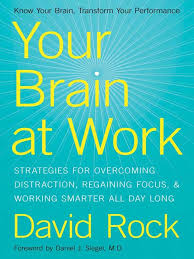
We highly recommend Your Brain at Work: Strategies for Overcoming Distraction, Regaining Focus, and Working Smarter All Day Long to everyone, especially those seeking growth and change at work. It is power-packed with insights, strategies, and research for doing better work. Read more >>
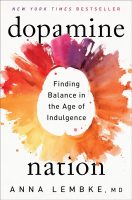
By Dr. Anna Lembke
Ever wonder why we crave so much pleasure? In Dopamine Nation, Dr. Anna Lembke dives into how our pursuit of happiness can lead to addiction and offers practical tips to find balance. Learn how to focus on meaningful connections and healthy activities instead of dopamine-driven habits. Read more >>
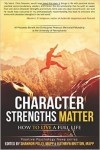
By Kathryn Britton and Shannon Polly
What’s even better than an inspiring, innovative, and useful book that helps us thrive? One that also supports a good cause. Character Strengths Matter: How to Live a Full Life, edited by Kathryn Britton and Shannon Polly, is just such a book. Read more >>
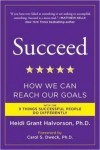
By Heidi Grant Halvorson
Succeed: How We Can Reach Our Goals focuses on goals: how we set them, how we reach them, and why we fail. This book is an extension of social psychologist Heidi Grant Halvorson’s popular Harvard Business Review blog post: Nine Things Successful People Do Differently. Read more >>
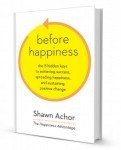
By Shawn Achor
Before Happiness is, more than anything else, about positive attitude. Achor writes in his introduction: “Before happiness comes your perception of the world. So before we can be happy and successful, we need to create a positive reality that allows us to see the possibility of both.” Read more >>
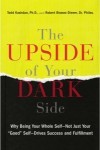
by Robert Biswas-Deiner and Todd Kashdan
The Upside of Your Dark Side is a bold and thought-provoking book by Todd Kashdan and Robert Biswas-Deiner (who, in the interest of full disclosure, trained me in positive psychology coaching and was at one point my coach). Read more >>
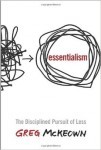
by Greg McKeown
I strongly recommend Essentialism: The Disciplined Pursuit of Less, by Greg McKeown, because it compellingly tells us why, and how, to do less, better.
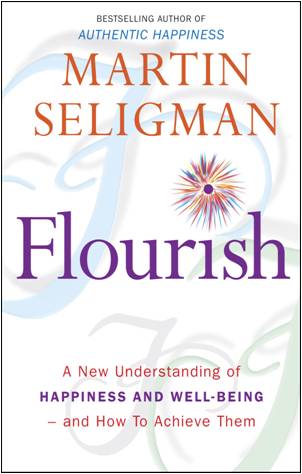
By Martin Seligman
Martin Seligman helped launch positive psychology and in Flourish: A Visionary New Understanding of Happiness and Well-being, he redefines it. The book is important, and strongly recommended for anyone interested in deeply understanding positive psychology. Read more >>
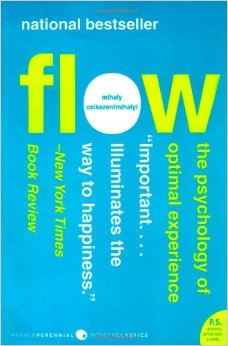
By Mihaly Csikszentmihalyi
In the positive psychology world, Flow is a classic book, and for good reason. It was published in 1990 by one of the founding fathers of positive psychology, Mihaly Csikszentmihalyi, after he had already led decades of research on “optimal experience”. I highly recommend Flow to anyone who wants to achieve the peak of life–at work and elsewhere. Read more >>
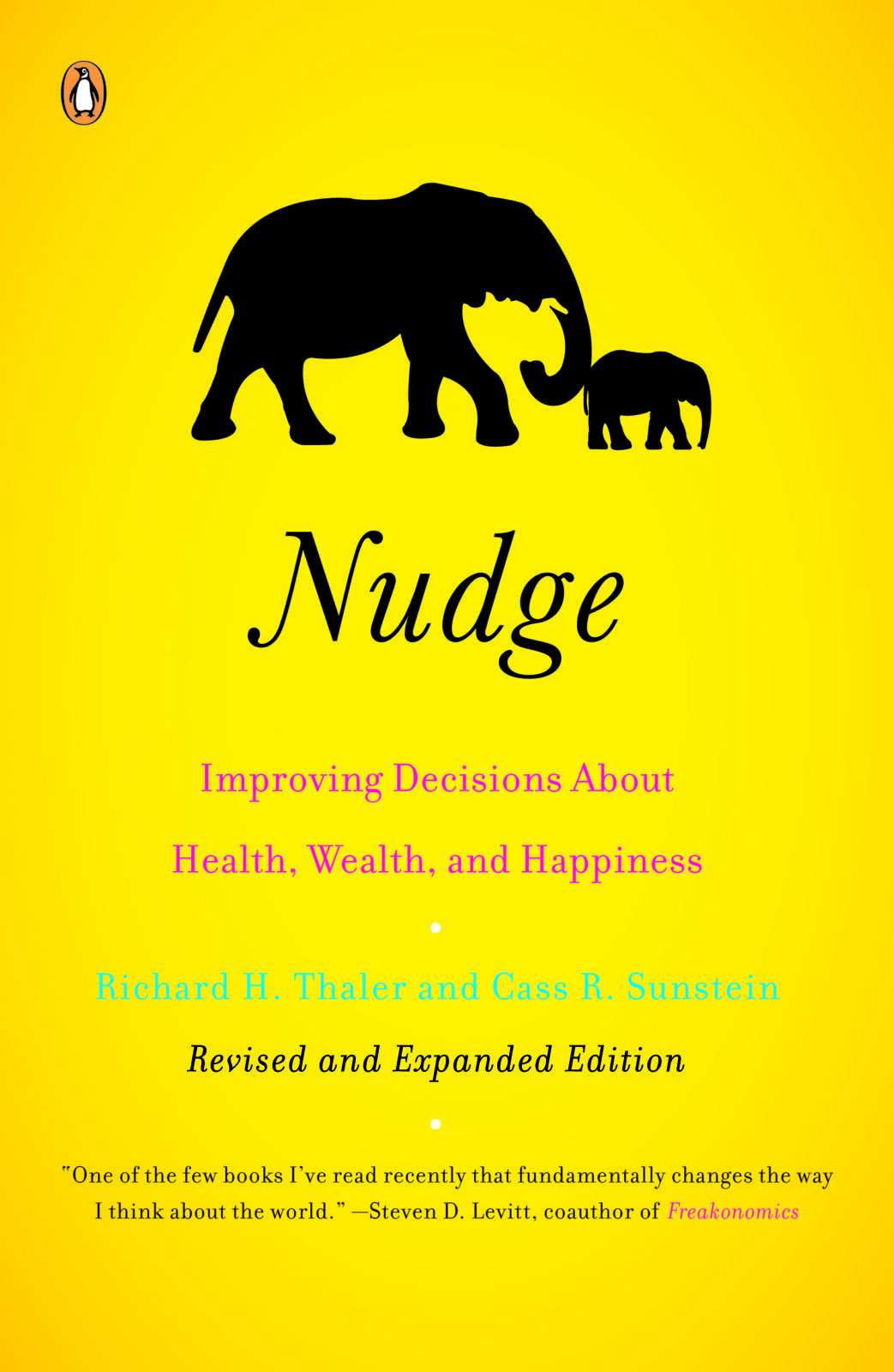
By Richard H. Thaler and Cass R. Sunstein
Nudge is a book for people who want to help –but not force– others to make better decisions. Nudge is about choice architecture: the ways that various factors in how a choice is presented may affect the decisions made by the chooser. By using NUDGES, choice architects can be more effective at helping people to make better choices. Read more >>
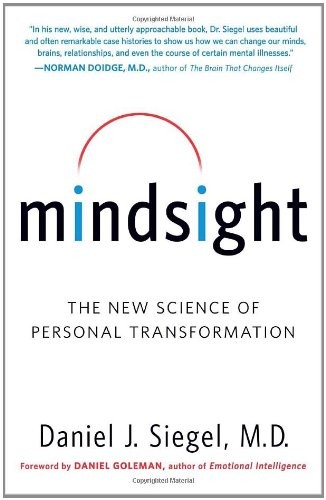
By Daniel Siegel
Mindsight: The New Science of Personal Transformation teaches us the power of focused attention and provides steps to apply it. It’s a great read for those interested in learning more about the brain, and how to harness the power of attention to change your brain and boost your happiness. Read more >>
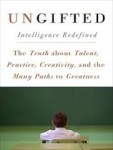
By Scott Barry Kaufman
I found Ungifted: Intelligence Redefined compelling, well-researched, and powerful, especially because Kaufman speaks both from his professional expertise as a cognitive psychologist and his own life experience. I recommend the book as a place to start for anyone who wants to work smarter, be more creative, and achieve more. Read more >>
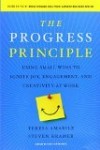
By Teresa Amabile and Steven Kramer
The Progress Principle: Using Small Wins to Ignite Joy, Engagement, and Creativity at Work presents compelling evidence that most of us are failing to use one of the most powerful tools of all: progress toward clear and meaningful goals. Read this book for excellent insights into why employees are so motivated by making progress, and what managers can do to better support and celebrate progress. Read more >>
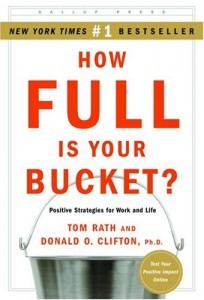
By Tom Rath and Donald Clifton
Totaling in at fewer than 100 pages, How Full is Your Bucket?is a quick and easy read for anyone working in teams or in a leadership position. The authors, Tom Rath and Donald O. Clifton, guide readers through six chapters that include research, case studies and applications of the power of positive (and negative) interactions between people. Read more >>
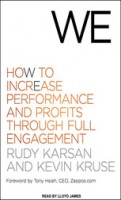
By Rudy Karsan and Kevin Kruse
We: How to Increase Performance and Profits through Full Engagement is titled so because the authors view employee engagement as a partnership between employees and their employers. I couldn’t agree more. This is a valuable book for those who want to dive deep to learn more about employee engagement. Read more >>

by Rodd Wagner and James K. Harter
12: The Elements of Great Managing introduces the Q12, a set of twelve questions that Gallup uses to measure employee engagement. Gallup’s extensive data suggests these 12 questions are key to measuring the things that make a performance difference. At the heart of the book is a chapter for each statement in this set, typically filled with stories. Read more >>

by Kelly McGonigal
The Willpower Instinct: How Self-Control Works, Why It Matters, and What You Can Do to Get More of It is a helpful book and is well-connected to scientific research on willpower. If eating, drinking, smoking, or other willpower challenges are interfering with your pursuit of happiness, I highly recommend this interesting and practical book. The author uses ten chapters that loosely follow the structure of the class she teaches at Stanford. Chapters include the science, ways to apply the science, and stories of students from her class.

by Daniel Gilbert
Stumbling on Happiness is the book that got me started on the science of happiness, so I’m fond of it. However, it’s focused on how we are poor at understanding and predicting our own happiness. It isn’t very focused on helping the reader become happier.
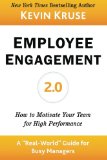
by Kevin Kruse
Kevin Kruse keeps employee engagement short and sweet. In Employee Engagement 2.0: How to Motivate Your Team for High Performance (A Real-World Guide for Busy Managers), which many will read in under an hour, he delivers a lot of important points regarding what matters in employee engagement. This book is far from complete and far from perfect – but it is effective. Many leaders are so busy with day-to-day demands that they don’t even know where to start with employee engagement. Kruse can tell them, in under an hour, some great places to start. Read more >>
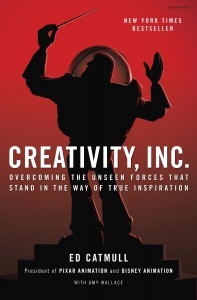
By Ed Catmull
Creativity, Inc. by Ed Catmull is literally and figuratively an exceptional book. Read more >>
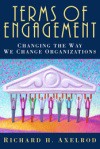
by Richard H. Axelrod
If you need an organizational change process that truly engages employees for best success, this is an excellent book. In Terms of Engagement: New Ways of Leading and Changing Organizations Richard H. Axelrod describes how the old model of organizational change simply doesn’t work well, and suggest a new approach that involves more people and together create the vision and actually design the work. He draws upon neuroscience as well as his own work experiences.

by Dr. Robert Biswas-Diener
The Courage Quotient: How Science Can Make You Braver, by a renowned happiness expert (and full disclosure: my coach), takes up the unusual and important topic of courage. It’s short and focused. It’s grounded in research. It can be helpful to those seeking to increase courage. One minor question I was left with is the statement in the book (page 9) that “Courage is morally valued.” He goes on to say that “Mugging is not an example of courage because it lacks an important component: moral value.” I failed to be convinced by his description. I feel that while we don’t admire muggers, they are every bit as courageous as someone who jumps in to save a stranger from a mugger. Despite this minor issue I wanted to be better resolved, this is an interesting and helpful read.
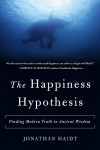
by Jonathan Haidt
The Happiness Hypothesis: Finding Modern Truth in Ancient Wisdom features a wonderful analogy of rider and elephant for our prefrontal cortex and rest of brain. If you want a good mix of science and ancient wisdom, this is an excellent book.

by David Rock
Your Brain at Work is well written and very practical. It’s not written by a neuroscientist, but it’s well-grounded in the science. This is a great resource directly focused on brains on the job. Read more >>
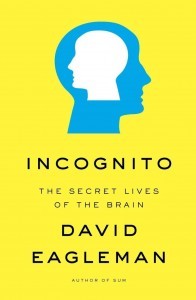
By David Eagleman
David Eagleman is a very smart person with an infectious enthusiasm for how the brain works. He does an excellent job describing how much of what happens in our brain is typically beyond our conscious awareness. Read more >>

by Chip and Dan Heath
Many books are about change. Switch: How to Change Things When Change Is Hard is one of the best. It extends the elephant and rider analogy used in The Happiness Hypothesis to come up with a succinct summary of the research: “Direct the rider. Motivate the elephant. Shape the path.” These amount to: give clear instructions to your prefrontal cortex, so there’s no room for analysis paralysis. Motivate the rest of your brain that is in control at least as much as your prefrontal cortex. And change the environmental factors so that change is easier. If you want to make hard changes in your life or your business, I highly recommend this book.

by Ed Diener and Robert Biswas-Diener
Authored by one of the pioneers of positive psychology and his son who’s also a great expert in the field, Happiness: Unlocking the Mysteries of Psychological Wealth is well grounded in science. Not quite as immediately applicable as The How of Happiness, this is still a great book I highly recommend to all.

by Edward M Hallowell
This book, Shine: Using Brain Science to Get the Best from Your People, for managers is a well written synthesis of various studies organized around 5 themes: select, connect, play, grapple & grow, and shine. If you want a fairly straightforward summary of the science and how to apply it to management, this is a good choice.

by Charles Duhigg
In all likelihood you didn’t decide how to get ready for the day today, you just acted out of habits. You showered, got dressed, and ate breakfast in whatever way and order you always do. The Power of Habit: Why We Do What We Do in Life and Business is very helpful for getting us to examine which habits we have, how they are made, and how they can be changed. This book is well-written and practical, especially for the first half. When the book later turns its attention to social habits and societal change, the connections and evidence are less strong. Still a recommended book, especially for those looking to build new habits or change old habits.
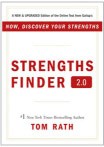
by Tom Rath
For roughly 30 dollars and 30 minutes, StrengthsFinder 2.0 and included questionnaire will likely provide helpful insights into what you do best and enjoy most. This is based on extensive data from the Gallup organization. Although I consider myself introspective, I learned things about myself in my 40’s that ended up contributing to my decision to change careers.

by Tal Ben-Shahar
The author of Happier: Learn the Secrets to Daily Joy and Lasting Fulfillment taught a very popular course at Harvard, on how to be happy. It’s a bit more lifestyle and story oriented than data oriented; if you want more personalized accounts of how to apply the science, this is a good choice for you.

by Marcus Buckingham
For those wanting to go deeper on finding strengths, Go Put Your Strengths to Work: 6 Powerful Steps to Achieve Outstanding Performance goes beyond the standard labels produced by StrengthsFinder 2.0, to help you get more specific about your individual strengths and how to act on them more often on the job.

by Shawn Achor
The Happiness Advantage is helpful to many people. Overall, it’s a very good and practical book on achieving more happiness at work. However, at times Achor over-states the science. I suggest applying healthy skepticism to the book and as always, experiment so you know what works best for you. Many of the examples come from the author’s experience at Harvard, not the business world.
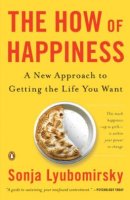
by Sonja Lyubomirsky
The How of Happiness: A New Approach to Getting the Life You Want is very data based, thorough, and practical. The best of the bunch on happiness. You’ll have to get through a bit of academic detail, but it’s well worth it. Read more >>